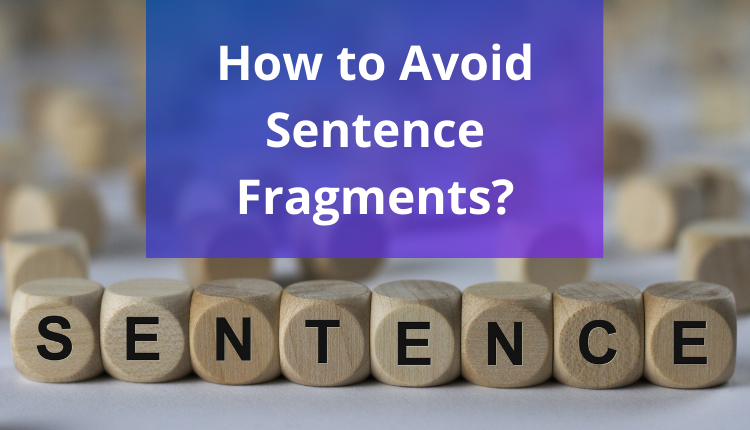Have you found yourself reading something and then retracing a sentence? Sensing that you missed something? On re-reading, you find that you were right! The sentence is incomplete. You’ve just come across a sentence fragment.
Simply put, a sentence fragment is an incomplete sentence. It is incomplete as it is missing the core components that make it a sentence. An incomplete sentence burdens the reader to guess what the sentence is about or slows down the pace of reading. Both are signs of poor writing. To prevent this from happening, let’s first understand what a complete sentence is, the types of fragments, and how to fix them. This article will help you recognize a sentence fragment and fix it.
A complete sentence in English is made up of a subject and a predicate.
Portia realized the power of cooperation over competition while hunting the large spider.
The subject (Portia) represents someone or something doing an action or being acted upon—in other words, a noun or noun-like word such as a pronoun or gerund (an –ing verb that is actually a noun). The predicate (realized…spider) usually begins with the action word, the verb, and goes on to tell you more about the action, like to whom, when, where, why, or how it was done.
If either the subject or the predicate is missing, you have no sentence. What about imperative sentences? You know? The commands or requests—“Click here!” or “Please check your email”. Such sentences have the implied subject ‘you’ and are considered complete.
With that covered, now let’s talk about fragments.
Any incomplete sentence is a fragment, but there are four types that occur frequently. Once you familiarize yourself with these, you will be able to recognize and revise sentence fragments.
- Missing subject or verb: Identify such fragments by reading them aloud and asking yourself who or what the sentence is talking about and what the subject is doing. If there is no answer for either of these, then you have a fragment.
fragment: Proceeded to transform the story into an award-winning movie. (missing subject)
sentence: She proceeded to transform the story into an award-winning movie.
fragment: Many similar to feats of human ingenuity. (missing verb)
sentence: Many are similar to feats of human ingenuity.
- Missing subject and verb: These fragments are typically prepositional phrases. They have to be attached to a complete sentence.
fragment: For this year’s conference in Singapore. (missing subject and verb)
sentence: We submitted our abstract for this year’s conference in Singapore.
fragment: For example, the keynote addresses by the industry leaders. (missing subject and verb)
sentence: We recorded the main events, for example, the keynote addresses by the industry leaders.
- Stand-alone verbal or infinitive phrase: It must be joined to a complete sentence to make sense.
fragment: Cultivating meaningful friendships during your teens. (unattached verbal phrase)
sentence: Spend a little time cultivating meaningful friendships during your teens.
fragment: To cultivate meaningful friendships during your teens. (unattached infinitive phrase)
sentence: Take a little time to cultivate meaningful friendships during your teens.
- Unattached dependent or subordinate clause: This is one of the most common types of fragments. To understand this fragment, let’s first get to know a bit about clauses. Clauses have a subject and predicate, but that does not mean all clauses are sentences. There are two types of clauses. The first type can stand on its own and is considered a complete sentence, and hence called an independent (or main) clause. The second usually begins with a subordinating conjunction, such as “because”, “if”, or “while,” and has a subject and predicate. But it cannot stand on its own: it must be joined to a complete sentence and is hence called a dependent (or subordinate) clause. If a dependent clause is not attached to any sentence, it is incomplete and ungrammatical. A fragment!
fragment: Since it was the first step toward nationhood. (unattached dependent clause)
sentence: The gathering of the tribes was the turning point since it was the first step toward nationhood.
A word of caution—sentence fragments are quite common in informal and creative writing. They are used as a rhetorical device or a faithful representation of natural speech. However, in formal writing, the use of sentence fragments is frowned upon because such writing has to be clear and leave little room for ambiguity, particularly in the sciences.
Now that you know what sentence fragments are and how to revise them, write out that thesis or research article and watch out for those fragments! Or you could just let Trinka detect them and advise you on how to correct them. Trinka’s AI-powered writing assistant has exclusive features to make your manuscript ready for the global audience. Go on! Try Trinka out!

